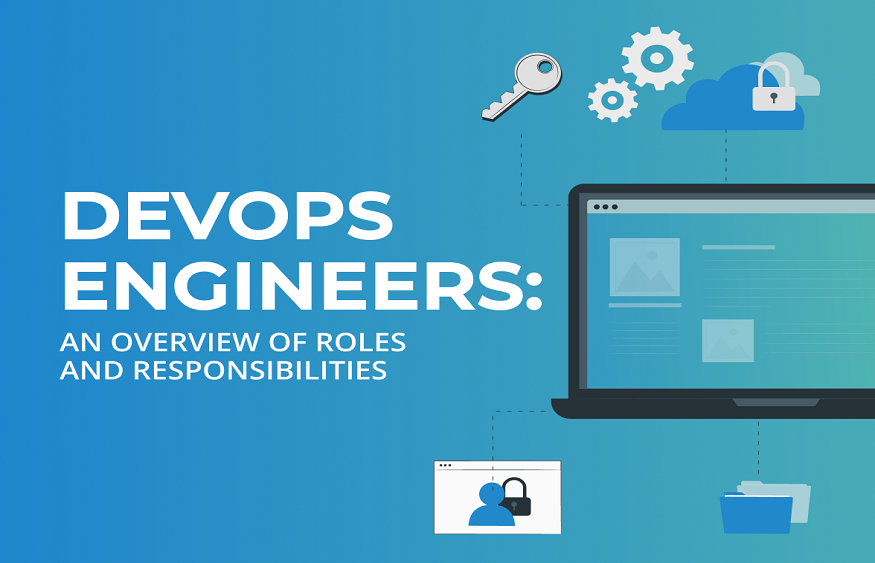Work-study is an ideal approach to becoming a DevOps engineer. From putting theoretical knowledge into practice to learning the realities of the field, discover all the advantages offered by this training system!
In software development, DevOps has become the norm. Thanks to the collaboration between development (dev) and operations (ops) teams, software can be delivered faster and its quality is increased.
This approach includes automation of configuration management and testing, and continuous integration and delivery. The goal is to improve the speed and reliability of software and application deployments.
DevOps makes it possible to meet modern user requirements, and is now essential for most software projects. Therefore, training as a DevOps engineer can open many doors for you…
On average, according to Glassdoor, a DevOps engineer earns 42,000 euros per year. In addition, mastering this methodology is now the main recruitment criterion for many IT companies.
There are many training courses to acquire expertise in DevOps, in higher education institutions and in the form of online courses in BootCamp or continuing education mode.
However, a work-study DevOps engineer training is one of the best choices to acquire this expertise. Through this file, discover why work-study is ideal for this job!
Learn to work in a team
Teamwork is at the heart of DevOps. Collaboration allows a better understanding of the needs of end users, in order to create software capable of meeting them.
It’s also what helps avoid conflicts and bottlenecks between dev, test, and operations teams that can slow deployments.
Communication also helps solve problems faster, and make better-informed decisions. This is especially important in a DevOps environment, since software is continuously deployed.
On a daily basis, a DevOps engineer must work as a team. However, work-study training makes it possible to learn good collaboration practices directly in the field and to develop essential communication skills.
Acquire skills through practice
Theory is not enough to acquire DevOps skills. For good reason, this methodology involves the implementation of practices and the use of specific tools.
It is therefore very important to understand how these tools work in a real software development environment. The DevOps engineer must know how to apply fundamental concepts such as configuration management, automated testing and CI/CD.
It is only through practice that one can really feel the impact of DevOps techniques, and discover their advantages and disadvantages. Thus, work-study training makes it possible to acquire concrete experience, and to put theoretical learning into practice to develop technical skills.
In addition, by working alongside DevOps professionals within a company, you will have the opportunity to benefit from their experience. They will be able to give you advice on a daily basis, and share their know-how with you.
Be operational at the end of your training
In order to succeed in their DevOps projects, companies need experienced professionals. They are looking for individuals capable of using the tools and directly applying the principles associated with this methodology.
Thanks to the time spent in the company, work-study allows you to accumulate concrete expertise. At the end of his training, the DevOps engineer is directly operational and therefore much more attractive for employers.
This is particularly important in the field of DevOps, because the technologies used are constantly evolving. New tools are constantly emerging, while existing solutions are expanding their functionality. It is therefore essential to keep up to date by working on real projects alongside seasoned experts.
Very often, a DevOps engineer trained on a work-study program continues to work for the same company at the end of his course. This is particularly the case if you opt for POEI (Operational Preparation for Individual Employment) training, aimed at directly meeting the needs of an employer.
An ideal way to finance your studies
DevOps training can be very beneficial for your career, but also requires an initial investment. However, one of the strong points of the work-study program is to finance one’s studies.
Indeed, remember that a work-study student is paid by the company in which he works. This remuneration can be of great help in helping you cover the costs of the training!
Conclusion: The best way to become a DevOps engineer
In conclusion, work-study is one of the best approaches to training as a DevOps engineer. Thanks to the time spent in the company, you will have the opportunity to put into practice the theoretical knowledge acquired in class, to rub shoulders with experienced professionals and to learn to work in a team.
This training system also makes it possible to follow the evolution of the technologies used by the DevOps teams, and to be immediately operational at the end of the course. It also allows you to finance your studies thanks to the remuneration received, and possibly to continue working for the same organization!




